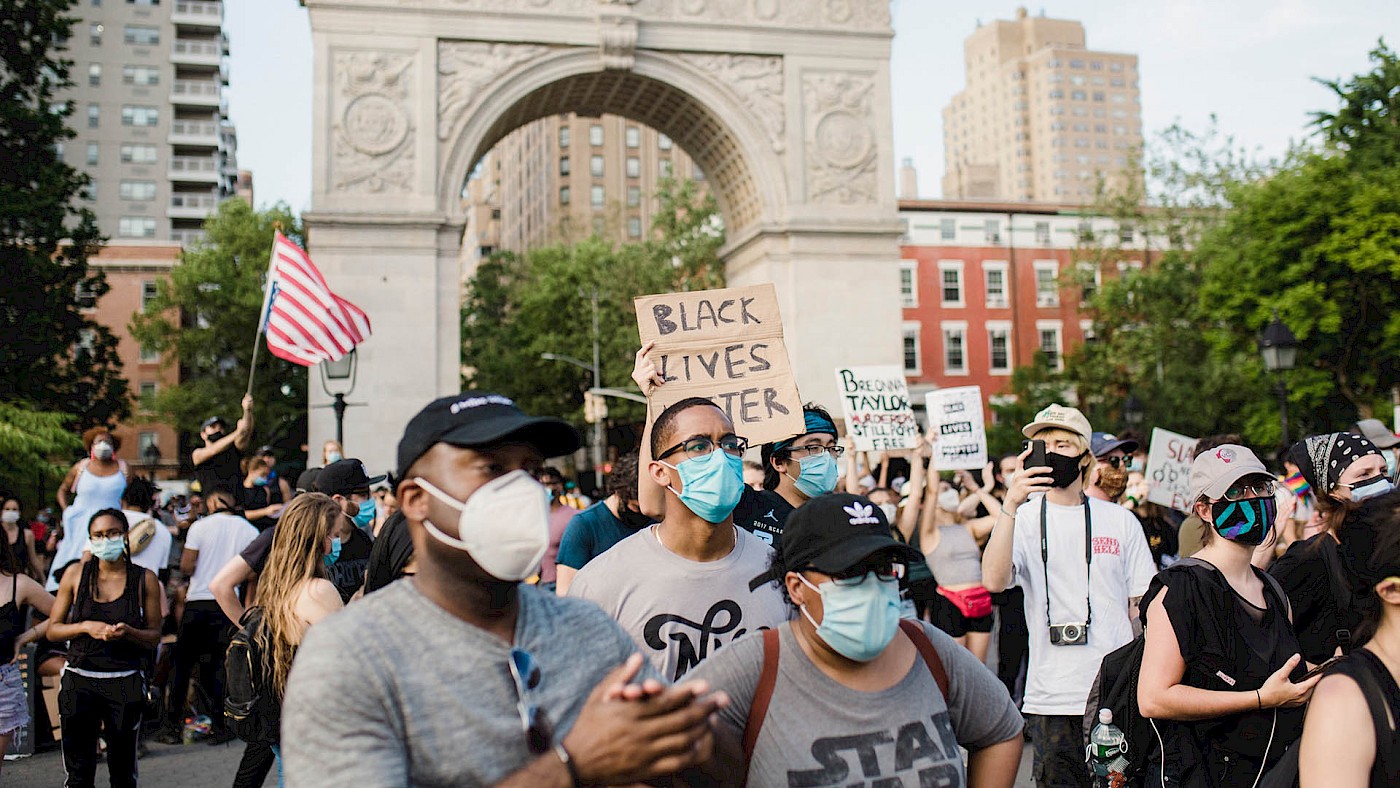The year 2020 has taken a completely different turn from what anyone may have expected a mere twelve months ago. The COVID-19 pandemic threw all our lives into disarray, with some countries and some elements of society suffering more than others, casting further harsh light – if such was needed – on the growing disparities in wealth and social position.
The brutal slaying of George Floyd at the hands of a cop in Minneapolis on 25 May brought to boil a rage that had been left simmering beneath the surface for far too long. Massive protests have erupted across the globe to underscore the fact that black lives matter, that systemic racism must be rooted out, and that money needs to be allocated where it can do the most good for everyone.
Right-wing politicians and corporate elites are fearful of change. When protestors clamour for the police to be defunded, bad faith commentators paint pictures of the lawless world that we would live in if there were no more cops on the street. But while some protestors do indeed advocate that the police should be entirely abolished, defunding the police means that a large part of the money that is now being invested into an increasingly militarized police force should be put to better use, such as improving social services, (mental) health care, and education.
Social justice is needed for all, and for too long the rich and powerful have been systematically undermining the rights of citizens as if they were nothing more than mere subjects and consumers. A radical restructuring of society is necessary, so that we may live in a world that is ecologically sustainable and equitable. Politicians may wring their hands, but they are part of the problem. As Davira Sirota recently wrote on the Guardian, Republicans in the United States have been systematically hollowing out the “forces responsible for protecting the population from the wealthy and powerful.”
One aspect of the protests that has been under fire recently regards the defacing and destruction of statues of historical figures. Boris Johnson, the Prime Minister of the UK, felt the urge to write about this issue in The Telegraph. He wrote that “it was also, frankly, absurd and deplorable that the statue of Winston Churchill should have been in any plausible danger of attack. […] It was and is miserable to see his statue entombed in its protective sheath.”
Is it, though? Protestors in the United States have target statues that commemorated Confederate leaders. In case you need a refresher regarding American history, these were the men who fought in the Civil War to defend the right to own slaves. It’s hardly surprising that in a movement aimed to underscore that black lives matter, these dubious historical figures are taken down a peg.
In the United Kingdom, the statue of slave trader Edward Colston was pulled down in Bristol and dumped into the city’s harbour. While not a slave trader or a Confederate leader, Winston Churchill wasn’t exactly a shining beacon of moral righteousness himself, as an article from the Independent published a decade ago summarizes. He bragged about shooting “savages”, defended the concentration camps in South Africa, believed that “the Aryan stock is bound to triumph”, and mentioned that he hated the Indians, adding: “They are a beastly people with a beastly religion.”
Boris Johnson, as well as some other political leaders, like the weasely and spineless Prime Minister of the Netherlands, Mark Rutte, has argued that the statues should stay where they are. In his op-ed, Johnson wrote that “we need to tackle the substance of the problems, not the symbols.” The implication is that the statues are in themselves somehow harmless, mere “symbols” rather than part of the problem itself.
That’s nonsense. As archaeologists are all-too-well aware, especially after the pioneering work done by Ian Hodder in the 1980s, material culture – including statues – are not mere “symbols”. Material culture is meaningfully constituted: it plays an active role in social strategies.
Erecting a statue to someone is a meaningful social act, as we also mentioned in passing in our recent podcast on sculpture. It is surely no coincidence that many of the statues commemorating Confederate leaders were created decades after the conclusion of the American Civil War, and a recent survey concluded that 32 Confederate monuments (including names of schools) have been dedicated since the year 2000. Similarly, Edward Colston’s statue in Bristol was put up in 1895, a whopping 174 years after his death, at another point of racial tension.
By putting up and maintaining a statue to a racist, whether a Confederate leader, an actual slave trader, or a dubious historical figure like Winston Churchill, you are condoning and reinforcing racism. The statue is not neutral: it is a potent reminder to everyone of the social order that you wish to enforce. Compare this, in terms related to the ancient world, with the construction of a fortification wall: it is a powerful symbol of strength, certainly, but the wall itself is also the very thing that reaffirms that strength.
Change has been long overdue. Black people and other minorities have suffered too long at the hands of their oppressors. A few days ago, the Kentucky Properties Advisory Commission voted to remove a statue of Jefferson Davis from the Capitol. This is a step in the right direction. But if politicians don’t act swiftly and in accordance to what is just, then protestors will in their stead, as recent events have demonstrated.
Boris Johnson, who studied Classics in Oxford, is surely well aware of the power that statues have. His claim that statues are merely “symbols” rather than “substance” holds no water. If there’s an argument to be made in favour of the humanities and the social sciences, then it is surely that they promote cultural understanding and respect. What Johnson wrote does neither.
Black lives matter.
